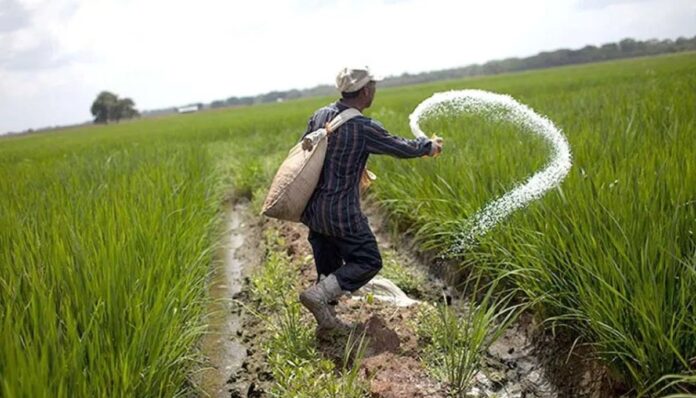Prime Minister Shehbaz Sharif has taken serious note of the rising prices of Diammonium Phosphate (DAP) and urea, prompting the formation of a high-level committee tasked with reviewing fertilizer prices and proposing solutions, according to a news report.
The committee, led by Minister for Economic Affairs Ahad Khan Cheema, includes Minister for National Food Security and Research Rana Tanveer Hussain, Minister of State for Power Abdul Rehman Khan Kanju, and Ahmed Umair. The group has been instructed to convene promptly to tackle the issue.
This development coincides with the Petroleum Division submitting a proposal to the Economic Coordination Committee (ECC), requesting the allocation of indigenous gas to three major fertilizer plants—two in Punjab and one in Karachi.
Industry sources revealed that the price of DAP, which is tied to international markets, has surged by Rs 500 per bag domestically. Meanwhile, urea prices are reportedly being sold at Rs 300 per bag below market rates.
The issue came to light during a recent cabinet meeting on wheat crop assessment and the National Wheat Policy, prompting the Prime Minister’s intervention.
In related developments, the Fertilizer Manufacturers of Pakistan Advisory Council (FMPAC) has urged the government to address misconceptions about the fertilizer industry.
In a letter to various ministers and secretaries, the FMPAC emphasized the industry’s critical role in ensuring national food security and supporting economic stability. They argued that while they have consistently supplied urea at prices significantly lower than international markets, there are misperceptions based on incomplete information.
FMPAC highlighted the following points:
- The industry has consistently provided indigenous urea at prices much lower than global rates, with annual savings of Rs 560 billion for farmers.
- By producing urea locally, the fertilizer sector saves the country approximately USD 3-4 billion in foreign exchange annually, avoiding a cash subsidy burden for the government.
- The industry saves the government about Rs 300-400 billion in indirect subsidies, which would otherwise be required if urea were imported.
As the government moves to address these issues, all eyes are on the committee’s recommendations and their potential to stabilize fertilizer prices for Pakistan’s farmers.




